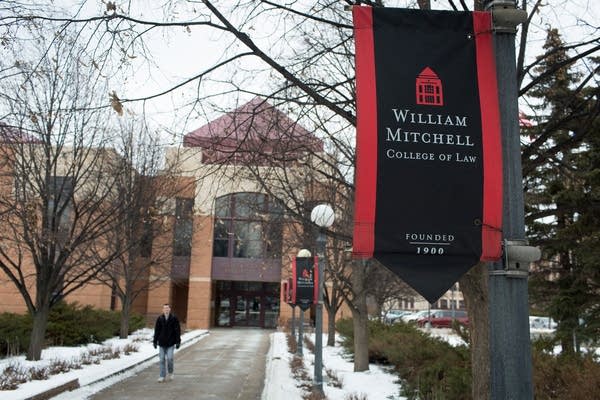Approval of Hamline, William Mitchell law schools merger expected in December

William Mitchell College of Law Friday, Feb. 13, 2015 in St. Paul. Approval for the school's merger with Hamline is expected in December.
Jennifer Simonson | MPR News file
Go Deeper.
Create an account or log in to save stories.
Like this?
Thanks for liking this story! We have added it to a list of your favorite stories.


